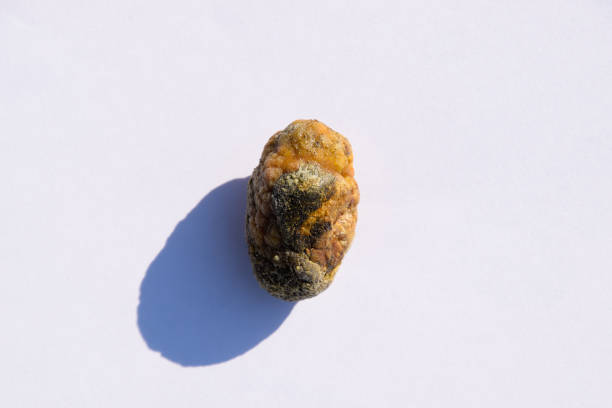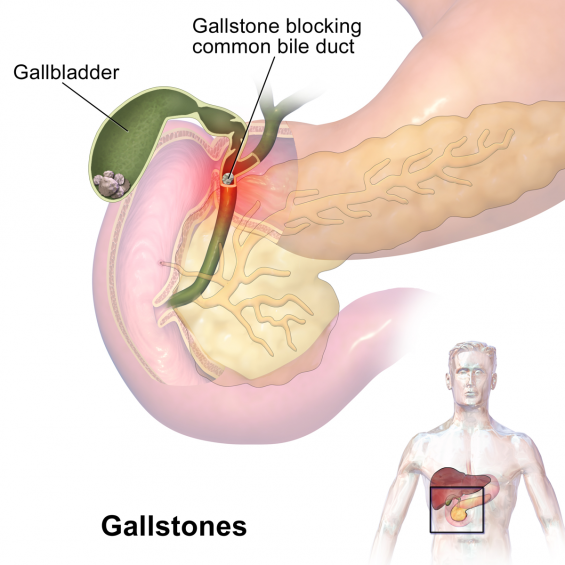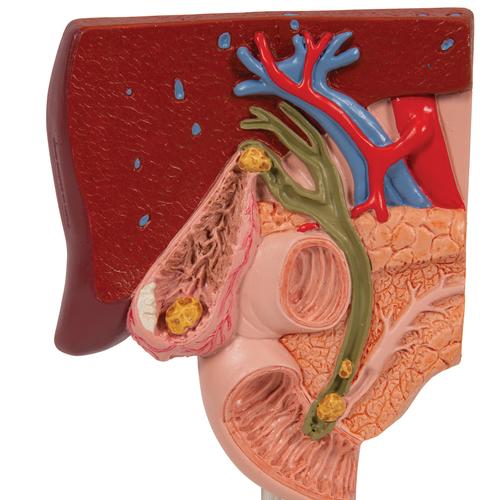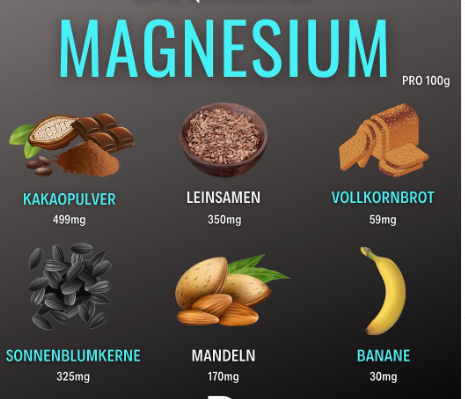Gallstones are a common problem faced by most of the people and is thought to be a major affliction of modern society. Gallstones are hardened deposits of the fluid bile, they are found to vary in size and shape and usually occur due to an imbalance in the chemical constituents of bile that causes its precipitation. If you have been diagnosed with gallstone problem then, your doctor might surely have discussed the treatment options available for you depending upon the severity of the condition. Here we shall discuss gallstone, its causes, symptoms and treatment and what is the right time to undergo a surgery.
What is a gallstone?

The gallbladder is a pouch located under the liver that stores bile. Bile is a fluid produced in the liver that aids digestion. When there is an excess of cholesterol in the bile, it gets saturated to form hard deposits in the gallbladder which is called gallstones.

What Causes gallstone and what are its Symptoms?
There are different causes for the formation of gallstones which include:
- Too much cholesterol in the bile: Bile usually dissolves the cholesterol produced by the liver. If the liver produces more cholesterol than the bile can dissolve, then it can form yellow gallstone(s).
- Too much bilirubin in the bile: Breaking down of red blood cells produces bilirubin. Liver damage/disorder (liver cirrhosis), biliary tract infection, or blood disorders causes the liver to produce more bilirubin than necessary. This causes the gallbladder an inability to break down the excess bilirubin. It then leads to the formation of dark brown or black gallstones.
- The gallbladder cannot empty itself properly: Bile formed in the gallbladder must be emptied completely and frequently. If it is not emptied then the bile becomes concentrated and forms gallstones.
Most people have asymptomatic gallstones that do not cause any pain. If there is any pain, then it occurs in the upper right abdomen. It can be triggered by eating spicy food, food high in fat, or fried foods. Some of the other symptoms are:
- Pain in the centre of the abdomen, just below the breastbone
- Pain in the shoulder blades
- Nausea
- Vomiting
- Diarrhoea
- Indigestion
What is the right time to undergo a surgery for gallbladder? How much time should you wait?
Most gallstones are asymptomatic and do not require any treatment. However, if the gallstone causes pain then there is a requirement to get a surgery done. The indicators for this will be severe symptoms like:
- Abdominal pain – The pain will be severe. You will find it uncomfortable to find a proper position to sit and sleep.
- Jaundice – The quickest way to understand whether you have jaundice or not is to check if your skin and eyes are turning yellow. It is caused as the bilirubin in the blood increases.
- High fever and chills. –
If you are experiencing these symptoms then it is the time for you to consider undergoing a surgery. In case, if surgery is not performed on time, it may worsen the condition causing you numerous health problems and even death.
Other conditions like, large size gallstones which cannot be removed through medications also require surgery. This is because the gallstones then pose a risk of obstructing the openings of the common bile duct, the neck of the gallbladder, pancreatic ducts or cystic ducts. These can cause severe complications like cholecystitis and hinder digestion. Larger sized gallstones cannot naturally pass through stool or urine.
Can I prevent gallstones from happening?
There are some lifestyle changes that can help prevent the formation of a gallstone. If an asymptomatic gallstone has formed, these changes can treat the gallstone naturally as well. Some such changes are:
- Cleansing the gallbladder: If a gallstone has formed in the gallbladder, it can be flushed out naturally so that it passes out with urine or stool. This flush can be done by consuming a mixture of herbs, apple juice and olive oil for a span of 2-5 days, after which the gallstones will flush out. There are other variations which can work for this as well, like a mixture of apple cider vinegar and apple juice, or dandelion tea, artichokes (mostly because they stimulate the proper functioning of the liver and gallbladder), or medication.
- Eating meals on time. Skipping meals or fasting will not give the body the required calories at the right time and will increase the chances of developing gallstones.
- Not losing weight rapidly, as through strict diets. Weight management and maintaining a healthy weight are important for the prevention of gallstones. If you do want to lose weight, consult your doctor for a healthy weight loss plan.
- Eating food rich in fibres like fruits, vegetables, legumes, nuts and whole grains. It is best to avoid high fats food, eggs and refined sugar in excess.
- Regular exercise of 30 minutes, at least 5 days a week. This one is fool-proof for most health conditions, including the prevention of gallstones.
If you note any of the symptoms of gallstones, visit your doctor immediately.
Summary:
In certain cases where your gallstones are asymptomatic and not showing any symptoms, your doctor can help get rid of it by providing treatment modalities like medications and lifestyle changes. However, conditions for surgery involve large size stones, jaundice, and complete obstruction of biliary ducts. Do not hesitate to consult your doctor immediately if you observe any concerning symptoms for your gallstones.





Liposuction is a cosmetic surgical procedure that aims to get rid of the excess stubborn fat in the body. It is majorly performed on hips, belly, thigh, arms, buttocks to improve the appearance of the body.
Asian Spine Hospital is equipped with state-of-the-art technology and infrastructure, including the most recent endoscopic surgical equipment and imaging systems. These advanced technologies enable their surgeons to perform minimally invasive surgeries that offer several advantages over traditional open surgeries. The benefits include smaller incisions, less blood loss, reduced risk of infection, faster recovery times, and less postoperative pain.